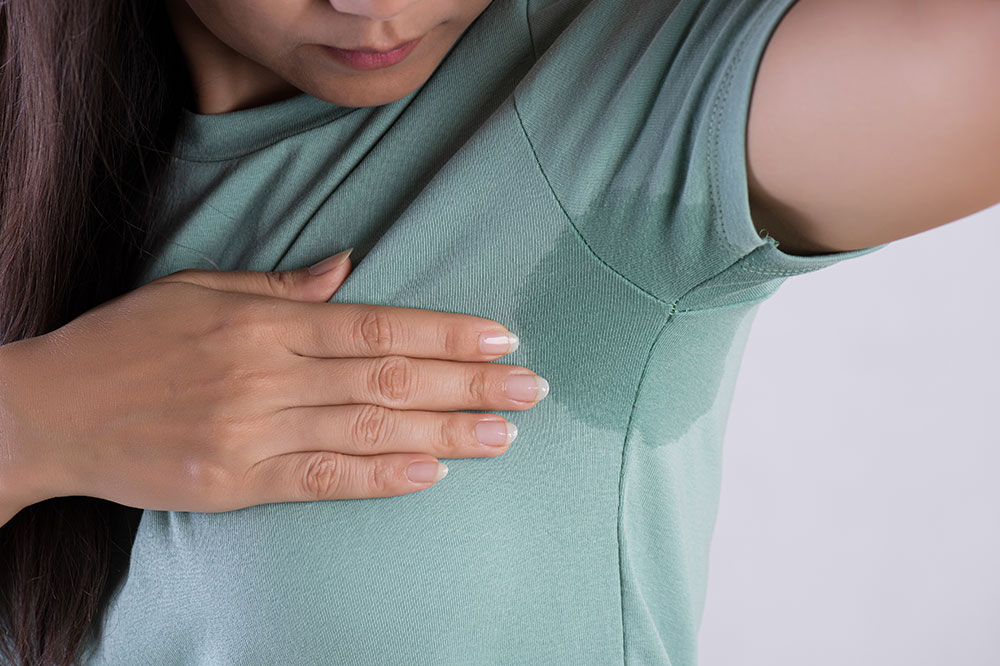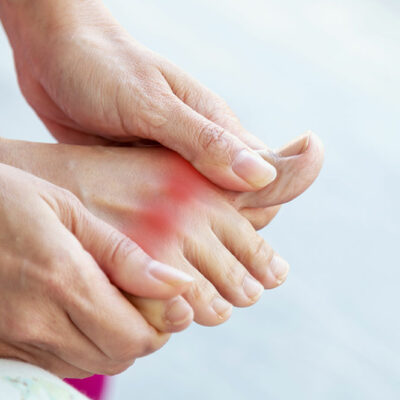
Medical Conditions That Cause Hyperhidrosis
When one experiences excessive sweating with no underlying medical cause, it is a case of primary hyperhidrosis and is possibly due to genetics. But in some cases, excessive sweating is the result of an underlying health condition, and this is known as secondary hyperhidrosis. Some common reasons for secondary hyperhidrosis include nerve damage, excess fluid build-up, and irregular body temperature and metabolism. So, let’s look at some common medical causes of excessive sweating.
1. Thyroid problems
The thyroid gland’s primary function is to produce a hormone thyroxine that regulate metabolism, breathing, heart rate, weight, and body temperature. When this gland produces excess thyroxine, the condition is called hypothyroidism. Higher levels of these hormones can increase heart rate and metabolism, which often leads to excessive sweating and many other problems.
2. Diabetes
Excessive sweating is a common symptom of diabetes. In fact, it’s often a sign of poorly managed diabetes. Although hyperglycemia or high blood sugar levels is very common in diabetes, some people also experience hypoglycemia or low blood sugar levels. And the hallmark symptom of low blood sugar is excessive sweating, especially at night. Also, diabetes can cause nerve damage over time, which can, in turn, damage sweat glands and result in hyperhidrosis.
3. Menopause
Menopause causes shifts in a woman’s hormonal levels. There are significant fluctuations in the estrogen levels prior to this, which is a period referred to as perimenopause. This leads to hot flashes or a sudden feeling of warmth in the upper body, which is usually accompanied by excessive sweating.
4. Heart Failure
Heart failure can lead to excess fluid buildup in the lungs, legs, or other parts of the body. To help remove this excess fluid, the body starts sweating profusely. It’s important to know that heart failure is different from an attack. And too much perspiration that comes on suddenly is one of the signs of a heart attack.
5. Anxiety
Most people experience hyperhidrosis caused by anxiety at some point in their lives. The human mechanism perceives anxiety as a danger and responds to it by raising breathing, heart rate, body temperature, the combination of which leads to excessive perspiration. Those who are constantly anxious are more likely to sweat several times a day. What’s worse is that hyperhidrosis can cause social anxiety and exacerbate the problem.
6. Reactions to Medications
Sometimes, medications used to treat certain medical conditions can have excessive sweating as one of their side effects. Some of these conditions include body pain, high blood pressure, cardiovascular problems, and psychiatric conditions. Chemotherapy, which is a popular cancer treatment, also often involves medications that can cause excessive sweating. Those having a hard time dealing with hyperhidrosis can speak to their doctor and ask for alternative medication that doesn’t cause the problem.


